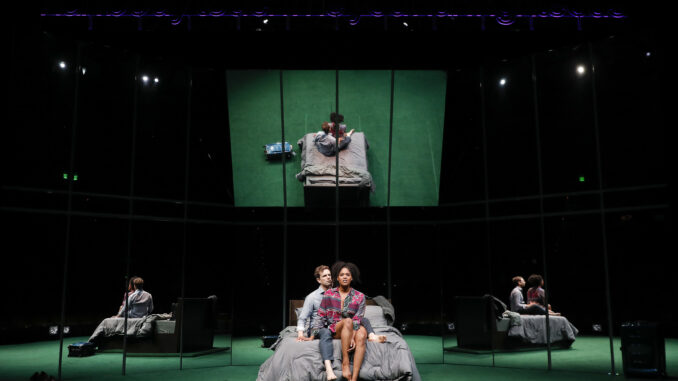
When playwright Jeremy O. Harris conceived of SLAVE PLAY as a student in his first year at the Yale School of Drama, he clearly planned a highly complex study of race, sex, power relations, trauma, and interracial relationships. SLAVE PLAY debuted in November 2018 off-Broadway and reached Broadway in October 2019. This controversial examination of racism and relationships garnered numerous award nominations, including 12 by the prestigious Tony Awards.
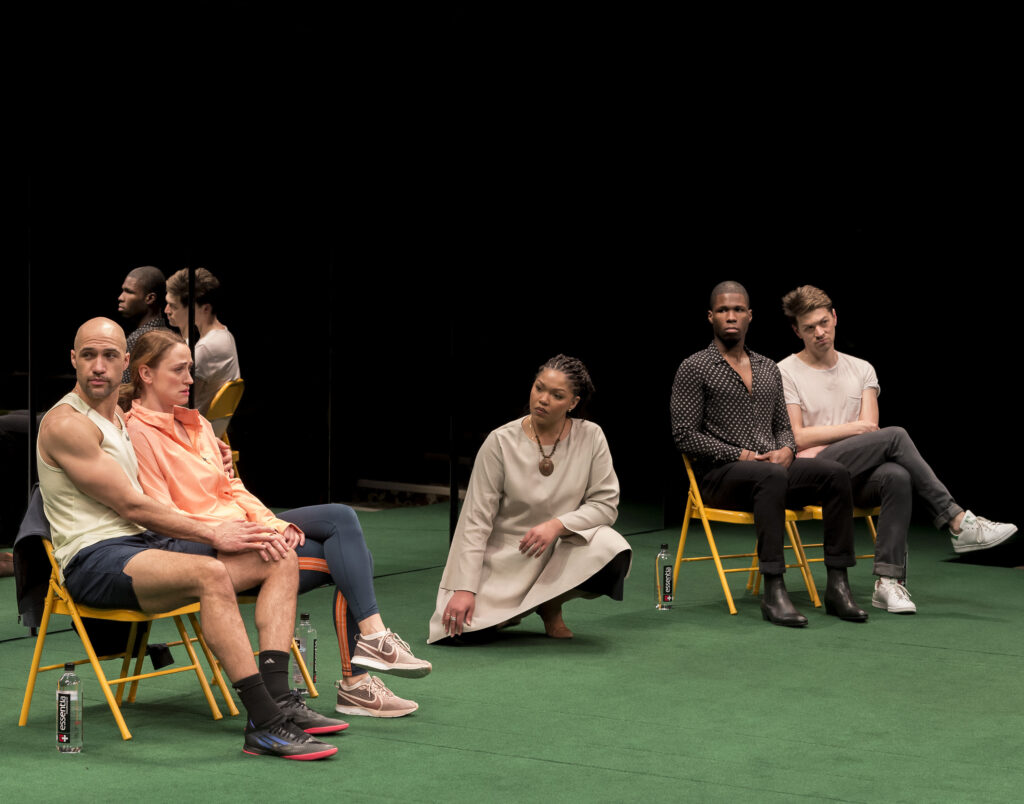
SLAVE PLAY also gained instant recognition, both positive and negative, from critics whose opinions ranged from “funny…scalding…mak(ing) every character an archetype while at the same time giving them depth…uneven…intentionally designed to provoke… oversimplified confessions meant to titillate.” SLAVE PLAY seems to have reached its goal, immediately becoming a provocative piece designed to confront and initiate serous thought. At a time when “Black Lives Matter” was a call to arms for understanding and diversity, the time was ripe for this incendiary approach. Known for its controversial and thought-provoking productions, the Mark Taper Forum presents SLAVE PLAY, compressing its original three-act format into two hours without an intermission.
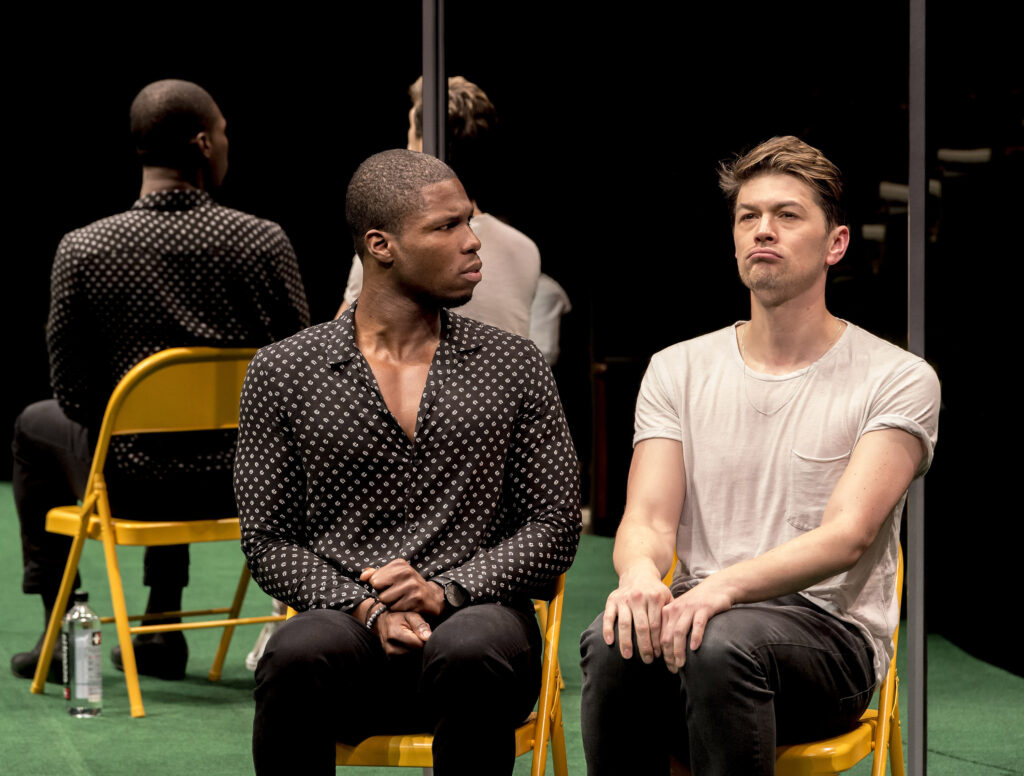
The production is divided into three parts. Overall, the action is presented as if it were a psychotherapy program called Antebellum Sexual Performance Therapy designed by Patricia (Irene Sofia Lucio) and Tea (Chalia La Tour), an interracial gay couple, who want to treat other interracial couples who are unable to experience sexual pleasure with their partners. The founding couple met as they did their thesis together at Smith and then Yale. They posit that anhedonia (loss of interest/motivation) is caused by racial trauma passed down through history, leaving black partners unable to enjoy sex with their white partners because of “Racialized Inhibiting Disorder.” In order to treat the disorder, they have designed their week-long therapy workshop. The first segment allows for role play as each member of three couples role plays historic stereotypes: the black slave Kaneisha (Antoinette Crowe-Legacy) and Jim (Paul Alexander Nolan), the white slave owner; Phillip (Jonathan Higginbotham), the mulatto house servant, and sexually aggressive Alana (Elizabeth Stahlmann) as Mme. McGregor, the Master’s wife; black slave Gary (Jakeem Dante Powell), in charge of white indentured servant Dustin (Devin Kawaoka), the only person lower on the totem pole than he is.
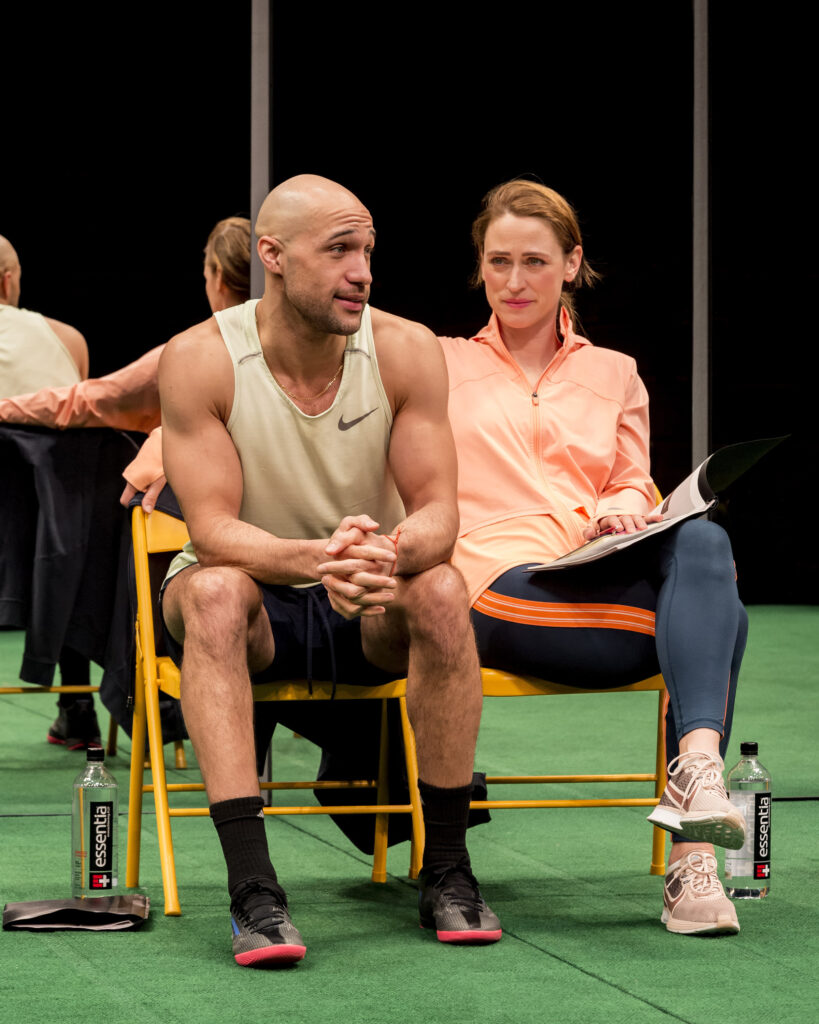
The second portion of the therapeutic approach involves a group therapy session in which the three couples interact, discuss, and confront their issues. The session rapidly deteriorates into a series of power plays and angry confrontations as white and black clash, with symptoms like anxiety, obsessive-compulsive behaviors, and musical obsessions surfacing. As disclosures escalate, so do deeply internalized fears, views, and values. At some point, Kaneisha’s white husband becomes a “virus” like the one which decimated the indigenous peoples of the Americas. One by one, each admits that he/she does not feel heard – but hearing also seems to create confusion and disruption.
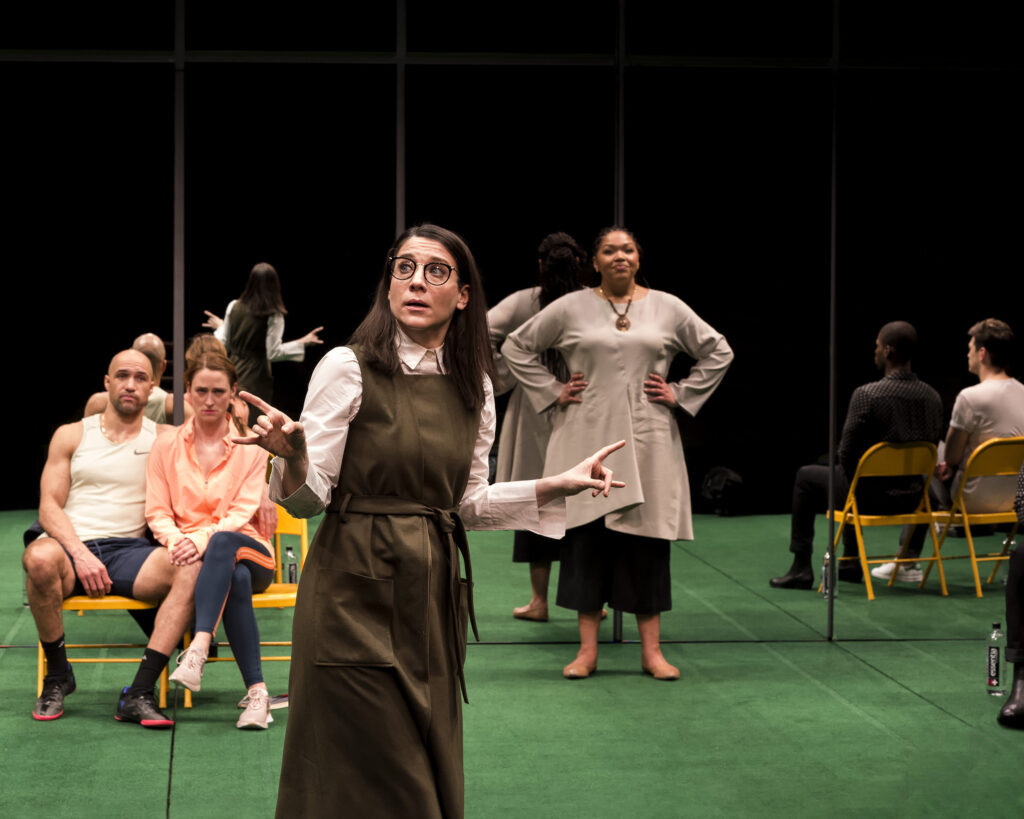
Finally, the third segment of the therapy opens with Kaneisha packing when Jim enters the room. Rather than better communication, she admits that she just wants Jim to listen. Slowly, she peels away layers of experiences that shaped her – and acknowledges that she fell in love with Jim, a white man, because he was not American. Apparently, their relationship went downhill three years ago because she began to see Jim as foreign, frightening, and all-powerful. What to do as hidden emotions explode to the surface?
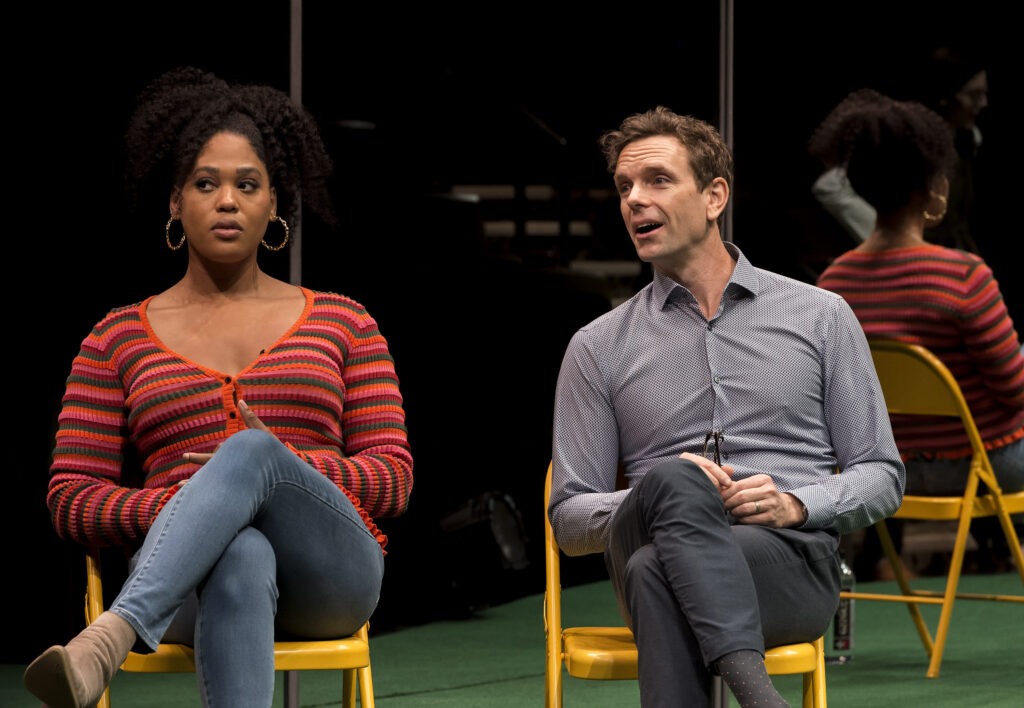
SLAVE PLAY is definitely a thought-provoking piece skillfully helmed by Robert O’Hara. This is a play which reveals multiple deep-seated problems and long-term stresses in American society – for which there are no simple answers or quick fixes. The entire cast does an excellent job of making sense of the conundrums inherent in the racial theme – while keeping the audience on their toes and the fur flying. SLAVE PLAY is meant to be uncomfortable, just as racial conflict is uncomfortable. This is a play which asks more questions than it answers – perhaps appropriate at this point in time. It can be entertaining and funny – but, at its base, this is serious stuff.
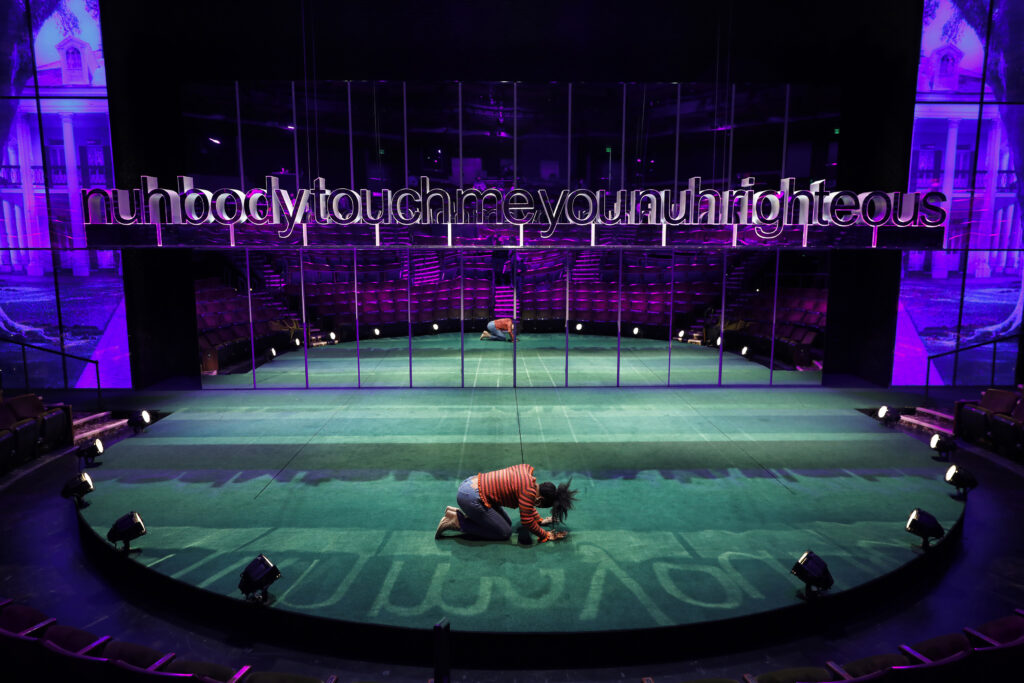
SLAVE PLAY runs through March 13, 2022, with performances at 8 p.m. Tuesdays through Fridays, at 2:30 p.m. and 8 p.m. on Saturdays, and at 1 p.m. and 6:30 p.m. on Sundays. The Mark Taper Forum is located at the Music Center, 135 N. Grand Avenue, Los Angeles, CA 90012. Tickets range from $35 to $110. For information and reservations, call 213-972-4400 or go online.

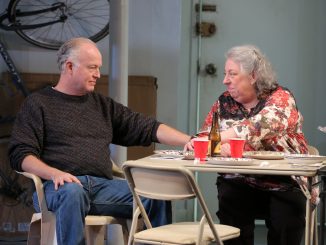


Be the first to comment